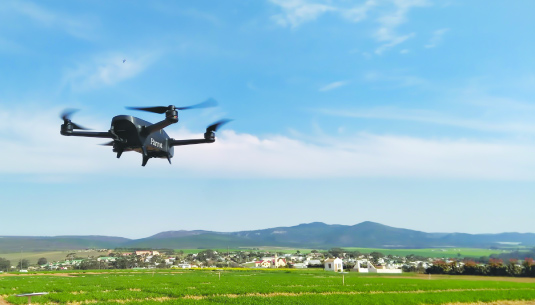
Shared problems
At root, the impediments to solving the challenges facing the African-American agri-food sectors are broadly similar. These problems cannot be solved by either the public or private sector alone, climate and pest risks are common problems, so too are the challenges of realizing the potential of regenerative agriculture, food safety and biosecurity. The list is long.
Shared solutions to scale
Strategic co-deployment of data-driven approaches to agri-food R&D is key to solving these shared problems. Minnesota and the Western Cape have diverse but largely overlapping agricultural economies and agribusiness networks that when coupled with their diverse agroecologies can accelerate improvements in genetics, crop and animal management, crop protection, food safety and security, and other areas of common concerns. Working together the Universities of Minnesota and Stellenbosch provide unique highly complementary springboard to jointly realize local, rest-of-Africa and rest-of-World agri-food solutions.
GEMS Services Used
Partnering with Purpose
The University of Minnesota and Stellenbosch University are purposefully pooling their agri-food data science efforts enabled by a formal Master Research Agreement. This strategic partnership opens up entirely new innovation opportunities to both universities and their broad and often complementary networks of public-private partners. Both universities have been strategically building out their next-gen research infrastructures to make this happen.
Minnesota has deployed a GEMS field sensing network (supported by a networked, backend data streaming service) across its 10 Research Outreach Centers that span the state's diverse agricultural production environments. Stellenbosch has stood up a Federated version of the GEMS Platform (offering the same data cleaning, documenting, sharing and analysis functionality as the version of the Platform running on UMN's Supercomputer), opened a new Data Innovation Hub, and supporting research facilities located throughout the variable agro-ecologies of the Western Cape.
Backstopped by their respective world-class agri-food research faculties, this on-the-ground, physical infrastructure coupled tightly with the expanding electronic infrastructure required to capture and process data, provides a truly unique platform for African-American shuttle phenotyping -- a modern equivalent of the shuttle breeding approach pioneered by UMN alum Norman Borlaug. Leveraging North-South seasonal differences and the diverse agro-ecologies of both universities is key to accelerating the testing, trialling and translating to market a host of new agri-food innovations.
Partnership assets
- African data can stay in Africa, enabled by a federated version of the GEMS Platform running on the Stellenbosch high-performance computing infrastructure.
- Researching a long list of common agricultural commodities, including wheat, barley, maize, apples, grapes, other horticulture, dairy, poultry, hogs and more.
- Shared commitment to deepening the investments in and capacity to conduct cutting-edge data-driven agrifood R&D.
- Shared commitment for upskilling agrifood scientists with practical data science capabilities.
- Shared passion to make a difference and apply science for private and social impact.
